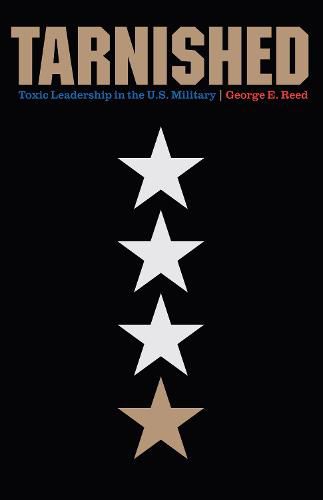Readings Newsletter
Become a Readings Member to make your shopping experience even easier.
Sign in or sign up for free!
You’re not far away from qualifying for FREE standard shipping within Australia
You’ve qualified for FREE standard shipping within Australia
The cart is loading…






Bad or toxic leadership, abusive supervision, and petty tyranny in organizations are perennial issues. But to date, there has been little effort to examine the scope and nature of bad leadership in the military. Tarnished rectifies that lack of attention by defining the problems and suggesting possible solutions appropriate to the military’s unique structure and situation.
Leadership is central to the identity of the U.S. military. Service academies and precommissioning processes have traditionally stressed the development of conscientious leaders of character. The services regularly publish doctrinal works and professional journal articles focusing on various aspects of leadership. Unsurprisingly, in most of those publications leadership is presented as a universally positive notion, a solution to problems, and something to be developed through an extensive and costly system of professional military education.
Leadership expert George E. Reed, however, focuses on individual experiences of toxic leadership at the organizational level, arguing that because toxic leadership has such a detrimental impact on the military organizational culture, additional remediation measures are needed. Reed also demonstrates how system dynamics and military culture themselves contribute to the problem. Most significant, the book provides cogent advice and insights to those suffering from toxic leaders, educators developing tomorrow’s military leaders, and military administrators working to repair the current system.
$9.00 standard shipping within Australia
FREE standard shipping within Australia for orders over $100.00
Express & International shipping calculated at checkout
Bad or toxic leadership, abusive supervision, and petty tyranny in organizations are perennial issues. But to date, there has been little effort to examine the scope and nature of bad leadership in the military. Tarnished rectifies that lack of attention by defining the problems and suggesting possible solutions appropriate to the military’s unique structure and situation.
Leadership is central to the identity of the U.S. military. Service academies and precommissioning processes have traditionally stressed the development of conscientious leaders of character. The services regularly publish doctrinal works and professional journal articles focusing on various aspects of leadership. Unsurprisingly, in most of those publications leadership is presented as a universally positive notion, a solution to problems, and something to be developed through an extensive and costly system of professional military education.
Leadership expert George E. Reed, however, focuses on individual experiences of toxic leadership at the organizational level, arguing that because toxic leadership has such a detrimental impact on the military organizational culture, additional remediation measures are needed. Reed also demonstrates how system dynamics and military culture themselves contribute to the problem. Most significant, the book provides cogent advice and insights to those suffering from toxic leaders, educators developing tomorrow’s military leaders, and military administrators working to repair the current system.